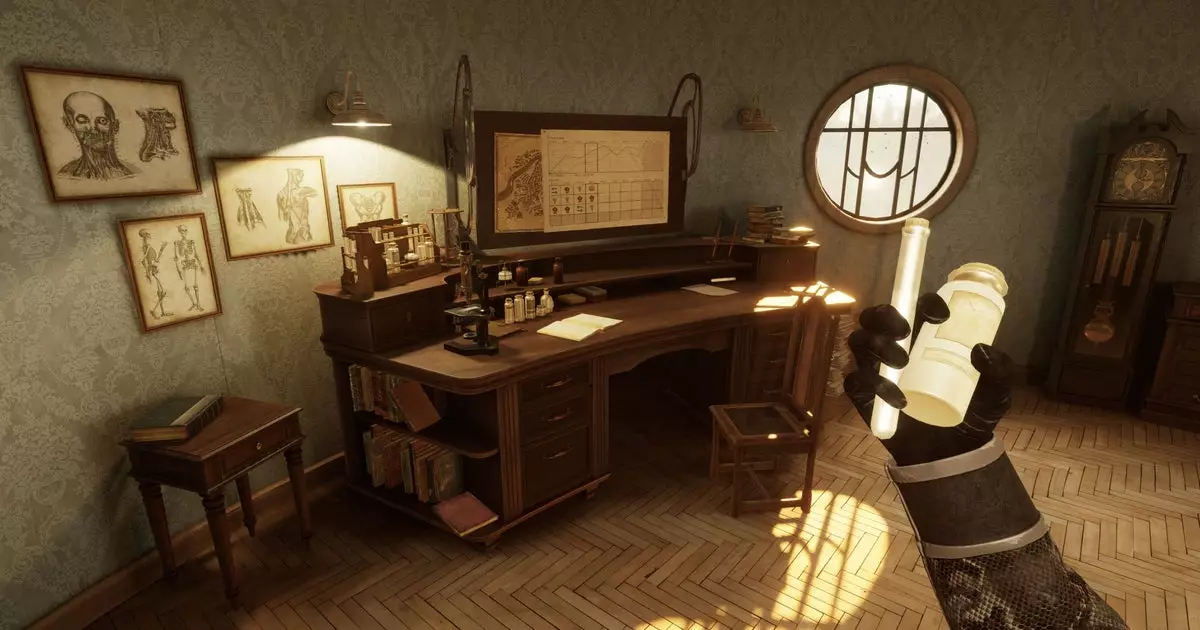The gaming landscape is ever-changing, influenced by players’ desires for more engaging narratives and innovative mechanics. One notable development is the recent announcement by Ice Pick Lodge regarding the next installment in the Pathologic series, aptly titled “Pathologic 3.” This sequel builds upon the foundation of its predecessors while introducing elements that promise to challenge players’ ethical frameworks even further.
Set against a backdrop of a plague-ridden town, Pathologic 3 appears to dive even deeper into the psychological horror that characterizes its roots. The original Pathologic, released years ago, introduced players to a world teeming with despair and ethical dilemmas. The sequel aims to preserve this oppressive atmosphere while adding fresh layers to the gameplay. Central to this is the introduction of a time-travel mechanic, a concept that drastically reshapes how players will experience the narrative. Rather than presenting a linear progression, this mechanic offers a Rashomon-like perspective, enabling players to revisit decisions and witness the ramifications of their actions through the town’s multifaceted narrative lens.
The allure of revisiting prior choices is undoubtedly a potent one. Players have historically found themselves emotionally invested in the outcomes of their actions, and the chance to alter the course of events adds a new level of depth. This mechanic promises to create a more immersive experience, captivating players who relish a strategic approach to storytelling.
Pathologic 3 puts players in the shoes of the Bachelor, a new character whose professional and ethical responsibilities as a physician will be put to the test. Unlike the previous protagonist, who required more survival tactics, the Bachelor brings to the game a more scholarly focus. Players will engage in research, utilize lab equipment, and strategize through the lens of epidemic management. The game devs emphasize the necessity of implementing quarantines and deploying patrols, suggesting a gameplay style that balances scientific inquiry with urgent problem-solving.
This shift from survival to management presents an intriguing dichotomy in gameplay. Players must consider not only their personal survival but also the well-being of their fellow townsfolk. The interplay between doctor and townspeople forces players to confront moral dilemmas: will they sacrifice the few for the many, or vice versa? Such ethical inquiries add richness to the gameplay, merging decision-making with the weight of moral consequence.
While the narrative elements undoubtedly elevate the franchise, it’s crucial to consider how resource management mechanics will impact player experience. The original Pathologic featured complex systems that often felt punishing, particularly regarding the notoriously unforgiving hunger and survival meters. However, the developers seem cognizant of this, with the promise that systems can be adjusted for a more tailored experience. Such advancements may well improve upon previous criticisms, inviting both newcomers and veterans to engage with the game without the frustration that was previously common.
A more nuanced difficulty scale may broaden the appeal of Pathologic 3, allowing players to explore the narrative without being deterred by steamrolling mechanics. Still, the challenge of managing scarce resources in tandem with overarching ethical questions could create a uniquely enthralling gameplay experience, reminiscent of a dark, unforgiving world where every action reverberates through time.
The announcement of Pathologic 3 heralds mixed feelings among both fans and critics. While some laud the potential depth and fresh narratives, others remain skeptical, fueled by experiences with earlier games in the series. Initial reviews surrounding Pathologic 2 revealed a divide, as ardent fans championed its bleakness while others were left grappling with overwhelming mechanics.
The developers’ decision to expand the narrative further by reintroducing the classic characters of the series could be a risky but bold choice. Introducing multiple perspectives, while ambitious, raises questions about the structure of the series as a whole. Will players have to purchase successive installments to uncover different narratives, or can they anticipate a more comprehensive and inclusive gaming experience?
The unveiling of Pathologic 3 is poised to stir conversations about the future of narrative-driven games. As players await its release, the game holds the promise of a haunting experience filled with choices that echo across both time and morality, ultimately flipping the script on how a narrative can unfold. Only time will tell whether this will be a return to glory or another chapter in a complex legacy.


Leave a Reply